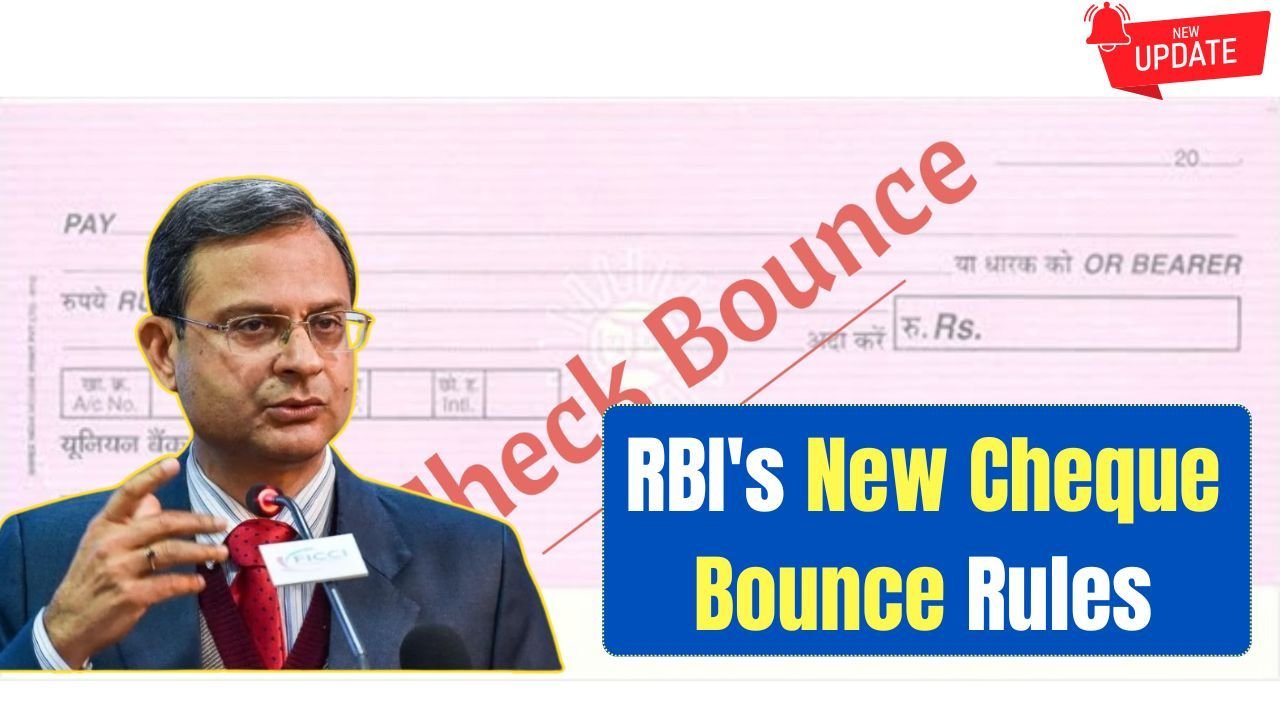The Reserve Bank of India (RBI) has announced a major change in the cheque clearing system that will make banking transactions faster and more efficient. Traditionally, cheque payments have always been considered slower compared to digital transfers like UPI or NEFT. However, with this new rule, RBI aims to bridge the gap by making cheque-based payments almost instantaneous, benefiting millions of account holders across the country.
What Has Changed in the New Cheque Rule?
Earlier, cheques often took one to three working days to clear, depending on the bank branch and location. This delay caused inconvenience for individuals and businesses that relied on cheque transactions. Under the new RBI rule, cheque clearing will happen in near real-time through an upgraded system that reduces dependency on branch processing. The change is being implemented using the Cheque Truncation System (CTS) across all banks, ensuring faster settlement of funds.
How the Cheque Truncation System (CTS) Works
The Cheque Truncation System eliminates the need for the physical movement of cheques from one branch to another. Instead, a scanned image of the cheque is sent electronically for clearance. RBI has now strengthened this system to ensure that cheque clearance happens within hours rather than days. This technological upgrade not only speeds up transactions but also reduces chances of fraud by making verification more secure and transparent.
Benefits of the New Rule
The biggest advantage is the reduction in waiting time. Individuals receiving payments through cheques will now get their money faster, sometimes even on the same day. Businesses relying on cheque transactions for bulk payments will also experience smoother cash flow. Additionally, quicker settlements will build more trust among parties using cheques as a mode of payment.
Comparison of Old vs New Cheque Clearance
The table below shows how the new rule will improve the speed of cheque payments:
| Particulars | Earlier System | New RBI Rule (2025) |
|---|---|---|
| Cheque Processing Time | 1–3 Working Days | Same Day / Within Hours |
| Mode of Clearance | Physical & Digital (mixed) | Fully Digital via CTS |
| Risk of Fraud | Higher | Lower (due to verification) |
| Benefit to Customers | Delayed Access to Funds | Faster Payments & Better Cash Flow |
Impact on Customers and Businesses
For salaried individuals who receive reimbursements or payments through cheques, this rule will provide immediate relief. Small and medium businesses, which often depend on cheque settlements for vendor payments, will benefit greatly as funds will be available sooner. The banking sector also gains efficiency by reducing manual workload and operational delays.
RBI’s Vision for Faster Payments
The introduction of this new cheque rule is part of RBI’s broader vision of promoting a cashless, digital-first economy while ensuring that traditional modes of payment remain relevant and efficient. By modernizing cheque transactions, RBI is balancing innovation with inclusivity, making sure that those who still prefer cheques are not left behind in the digital race.
Conclusion
The RBI’s new cheque rule is a game-changer for India’s payment ecosystem. By reducing cheque clearance times to just hours, it ensures that customers and businesses enjoy faster, safer, and more reliable financial transactions. This move is yet another step towards strengthening India’s banking infrastructure while offering convenience to millions of people who continue to rely on cheques.




